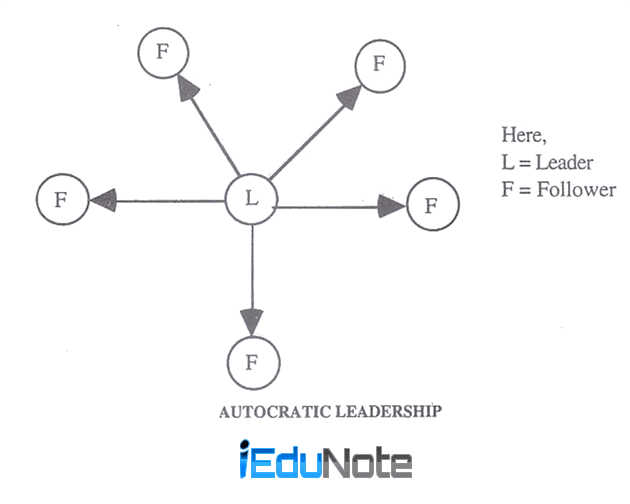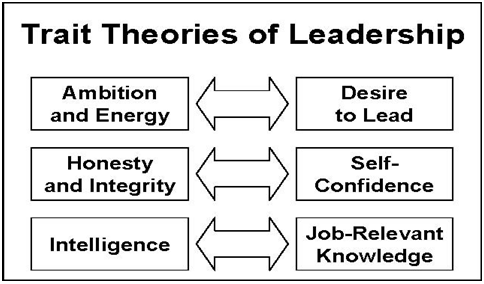Leadership styles refer to a leader’s behavior toward group members. The behavior pattern is that the leader reflects his role as a leader and is described as a style—leadership style results from a leader’s philosophy, personality, experience, and value system.
Leadership styles based on authority are four types;
Let’s know how these leadership styles work and learn about their’s advantages and disadvantages;
Autocratic Leadership

Autocratic leadership relies on coercion, and its style is paternalism, arbitrariness, command, and compliance. The autocratic leader gives orders that the subordinates must obey.
He determines policies for the group without consulting them and does not give detailed information about plans but simply tells the group what immediate steps they must take.
Diagrammatically it may be shown in the following way;
However, some autocratic leaders may happen to be “benevolent autocrats.”
Generally, they are willing to hear and consider subordinates’ ideas and suggestions, but when a decision is to be made, they turn out to be more autocratic than benevolent.
Advantages of autocratic leadership
- It is the speed with which decisions can be made; the leader does not have to obtain group members’ approval before deciding.
Disadvantages of autocratic leadership
- Autocratic leadership does hurt group morale.
- Members may resent how decisions are made and thus support them in only a minimal fashion.
Democratic Leadership

The style of leadership that uses legitimate power can be classified as democratic leadership.
A democratic leader usually gives instructions only after consulting with the group. He sees to it that policies are worked out in group discussions and with the group’s acceptance.
That means democratic leadership solicits employees’ participation and respects their opinions. Diagrammatically it can be shown in the following way;
Advantages of democratic leadership
- It often enhances the morale of the employees.
- It increases the acceptance of management’s ideas.
- It increases cooperation between management and employees.
- It leads to a reduction in the number of complaints and grievances.
Disadvantages of democratic leadership
- It accounts for slow decisions and diluted accountability for decisions.
- Possible compromises may be designed to please everyone but do not give the best solution.
Free-Rein Leadership

The leadership style which allows maximum freedom to followers may be called free-rein leadership. It gives employees a high degree of independence in their operations.
A free-rein leader completely abdicates his leadership position to give all responsibility for most of the work entrusted to him to the group he is supposed to lead, limiting his authority to maintain the contact of the group with persons outside the group.
This is also known as the permissive style of leadership.
Diagrammatically it may be shown in the following way;
Advantages of free rein leadership
- Opportunity for individual development is offered to group members.
- All persons are given a chance to express themselves and function relatively independently.
Disadvantages of free rein leadership
- It may result in a lack of group cohesion and unity toward organizational objectives.
- Without a leader, the group may have little direction and a lack of control.
- The result can be inefficiency or, even worse, chaos.
Paternalistic Leadership
Under Paternalistic Leadership, the leader assumes that his function is paternal or fatherly.
His attitude is treating the relationship between the leader and the group as that of a family, with the leader as the head of the family.
He works to help, guide, protect, and keep his followers happily working together as family members.
He provides them with good working conditions and employee services.
This style has been successful in Japan because of its cultural background. It is said that employees under such leadership will work harder out of gratitude.
This mode of leadership produces good and quick results if the followers are highly educated and brilliant and have a sincere desire to go ahead and perform with responsibility.

![Leadership: Definition, Nature, Styles [Comprehensive Guide]](https://www.iedunote.com/img/1033/leadership.jpg)